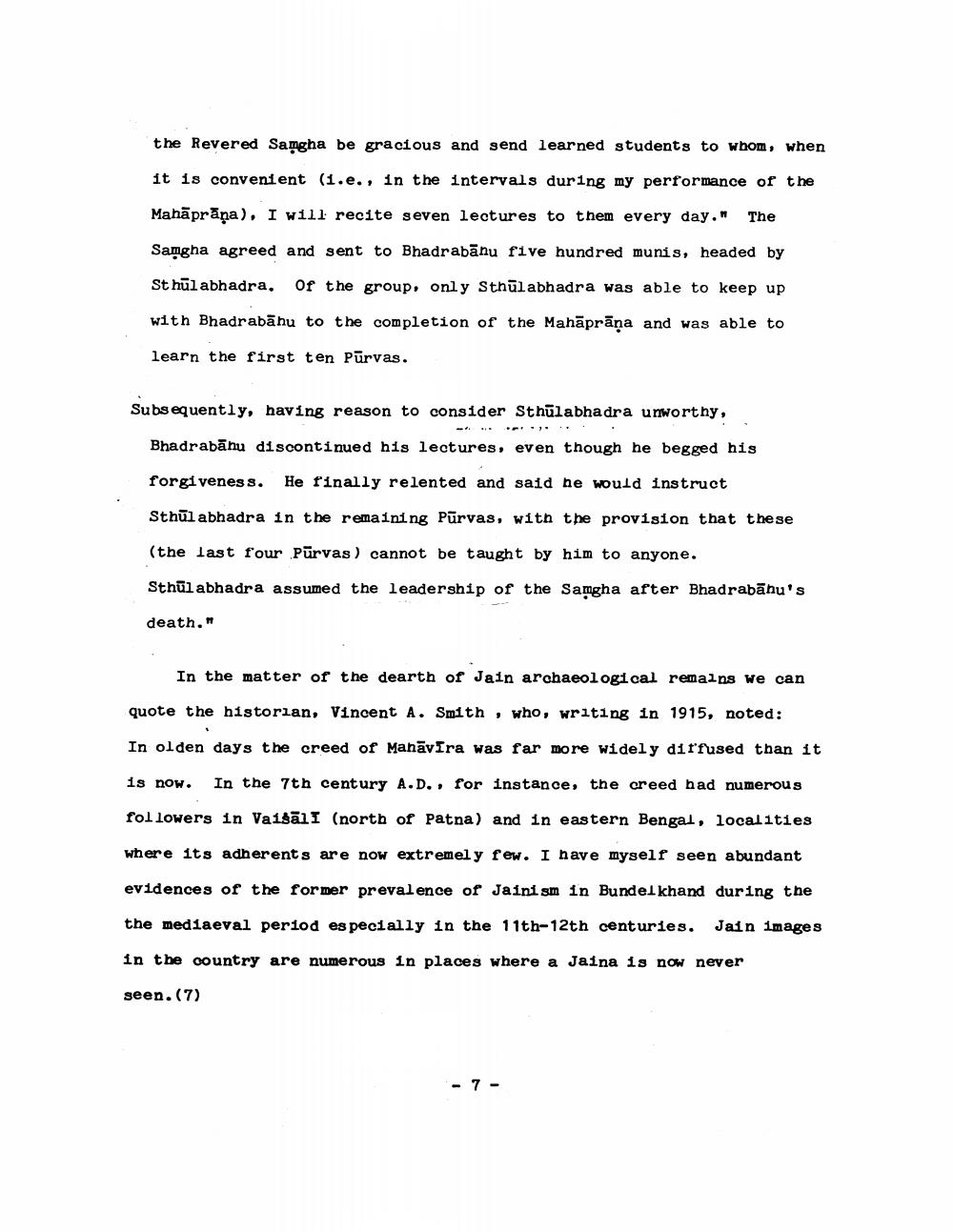Book Title: Jain Presence In Nepal Author(s): Ernest Bender Publisher: Ernest Bender View full book textPage 7
________________ the Revered Samgha be gracious and send learned students to whom, when it is convenient (1.e., in the intervals during my performance of the Mahāprāņa), I will recite seven lectures to them every day." The Samgha agreed and sent to Bhadrabānu five hundred munis, headed by St hūlabhadra. Of the group, only Sthūlabhadra was able to keep up with Bhadrabāhu to the completion of the Mahāprāņa and was able to learn the first ten Purvas. Subsequently, having reason to consider Sthūlabhadra unworthy, Bhadrabānu discontinued his lectures, even though he begged his forgiveness. He finally relented and said he would instruct Sthūlabhadra in the remaining Pūrvas, with the provision that these (the last four Pūrvas) cannot be taught by him to anyone. Sthūlabhadra assumed the leadership of the Samgha after Bhadrabānu's death." In the matter of the dearth of Jain archaeological remains we can quote the historian, Vincent A. Smith , who, writing in 1915, noted: In olden days the creed of Manāvīra was far more widely diffused than it is now. In the 7th century A.D., for instance, the creed had numerous followers in Valsāli (north of Patna) and in eastern Bengal, localities where its adherents are now extremely few. I have myself seen abundant evidences of the former prevalence of Jainism in Bundelkhand during the the mediaeval period especially in the 11th-12th centuries. Jain images in the country are numerous in places where a Jaina is now never seen. (7) - 7Page Navigation
1 ... 5 6 7 8 9 10 11
